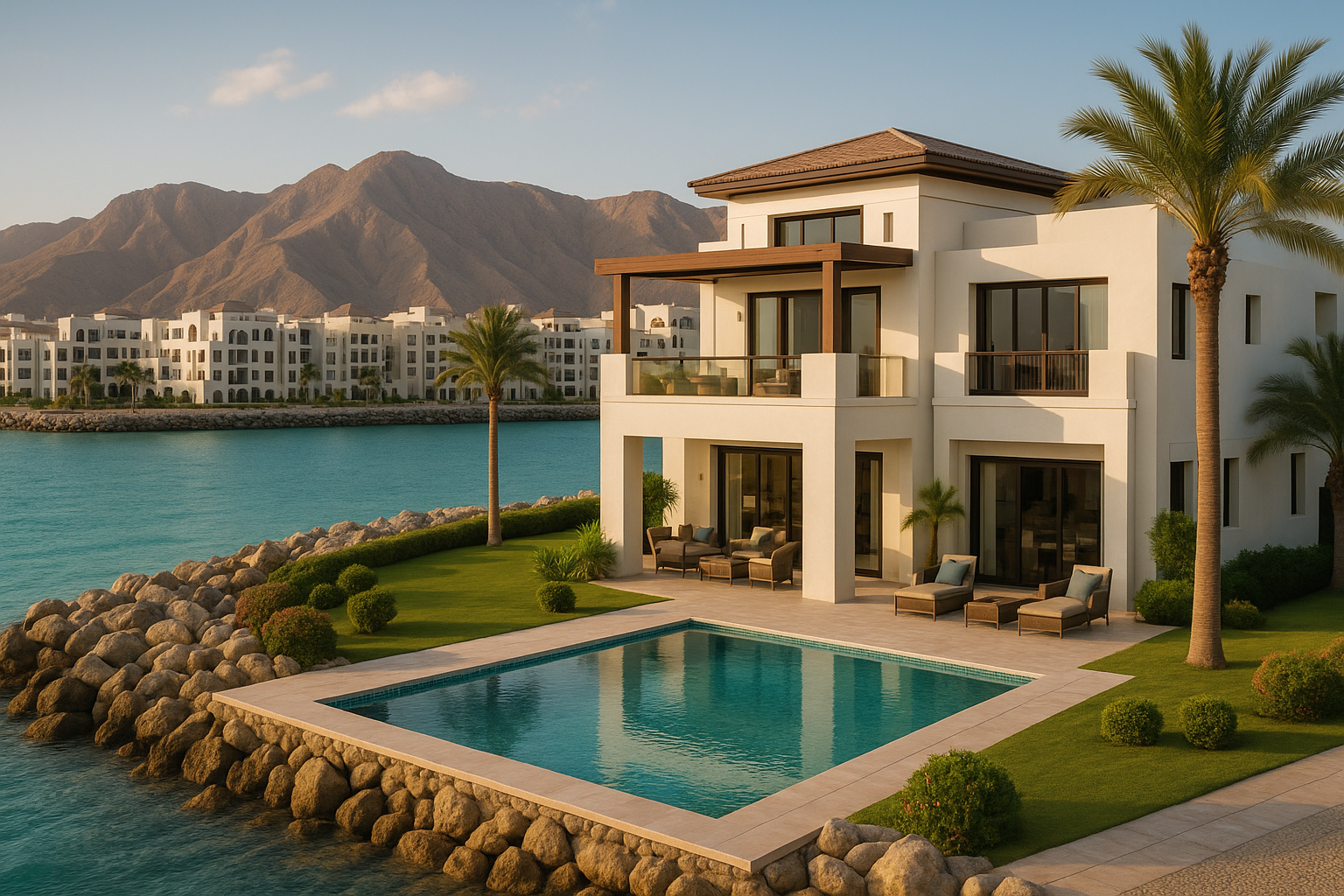Investing in Real Estate in Oman (Freehold & Leasehold Rules for Expats)
Introduction
Oman has rapidly emerged as one of the Gulf region’s most promising destinations for expatriates seeking real estate investment opportunities. With its stable economy, high quality of life, and government-driven infrastructure growth, Oman attracts thousands of foreign investors each year.
Whether you’re considering a luxury villa overlooking the ocean in Muscat or a long-term residential lease in an emerging district, understanding the freehold and leasehold property rules for expats in Oman is essential.
This guide breaks down how foreigners can buy or lease property in Oman, where they can invest, and why Oman is quickly becoming a top global real estate hotspot.
Freehold Property Ownership in Oman
Freehold ownership is the most secure form of property investment in Oman, allowing full ownership rights to foreign buyers. However, these rights are currently limited to designated Integrated Tourism Complexes (ITCs) — master-planned communities approved by the Omani government for international investment.
What Freehold Means for Expats
You own the property and the land it sits on outright.
You can sell, lease, or pass on the property to your heirs without restrictions.
Ownership is protected under Omani property law and registered with the Land Registry.

Where Expats Can Buy Freehold Property
Freehold properties are only available in Integrated Tourism Complexes (ITCs). Some of the most popular include:
Al Mouj Muscat – A waterfront community offering luxury apartments, villas, and a marina.
Muscat Hills – A golf estate combining leisure and residential luxury.
The Wave – A mixed-use development offering high-end villas and commercial units.
The Sustainable City – Yiti – A new eco-luxury project designed for sustainable living and long-term ROI.
These developments cater to investors who want modern infrastructure, coastal access, and high rental yields, with ownership similar to that in Western real estate systems.
Benefits of Freehold Ownership
100% ownership rights for expats
Long-term capital appreciation potential
Rental income in tax-free Oman
Access to Oman residency (subject to property value)
Eligible for family inheritance under local law
With Oman Vision 2040 focusing on diversification and tourism growth, freehold properties in ITCs are expected to see strong appreciation in the coming decade.
Leasehold Property for Expats in Oman
While freehold is restricted to ITCs, expatriates can lease properties across most parts of Oman under long-term agreements, making it a highly flexible and affordable option.
Understanding Leasehold Ownership
Expats cannot own the land but can lease it for up to 99 years.
The lease can often be renewed or transferred with landlord consent.
Leasehold provides legal occupancy rights registered with authorities.
Suitable for residential, commercial, or mixed-use purposes.
This makes leasehold property in Oman ideal for:
Professionals seeking long-term housing.
Businesses establishing offices or retail spaces.
Investors who prefer lower upfront costs compared to freehold units.

Advantages of Leasehold Property
Lower initial investment than freehold
Wide geographic flexibility (available across Oman, not just ITCs)
Minimal ownership complications
Long-term security with renewable leases
Leasehold is perfect for those looking to live and invest in Oman without committing to high-value freehold properties.
Why You Should Invest in Oman Real Estate
Oman offers a unique blend of lifestyle, security, and profitability that few other Gulf nations can match. Here’s why investing in Oman’s property market makes sense in 2025 and beyond:
Political and Economic Stability – Oman remains one of the most peaceful and business-friendly nations in the Middle East.
Strong Rental Demand – With thousands of expats relocating each year, rental properties in Muscat, Sohar, and Salalah are in constant demand.
Tax Benefits – No personal income tax or capital gains tax on property sales.
High ROI in ITCs – Freehold developments like The Sustainable City – Yiti and Al Mouj are delivering returns up to 12–15% per annum.
Residency Through Investment – Purchasing eligible property can grant long-term residency rights.
With growing government incentives and increasing investor confidence, Oman real estate is becoming a top-tier global investment choice for expatriates and high-net-worth individuals.
Conclusion
For expatriates seeking a blend of security, returns, and lifestyle, Oman’s real estate market offers immense promise.
Freehold properties in ITCs are perfect for those aiming for long-term ownership, family stability, and capital growth.
Leasehold properties provide flexibility and affordability for residents and business owners alike.
Whether you’re investing for passive income, relocation, or wealth diversification, real estate in Oman provides one of the most stable and rewarding opportunities in the GCC — especially as sustainable developments like Yiti redefine the future of eco-luxury living.
Now is the time to invest in Oman property — a market that’s as financially sound as it is forward-thinking.